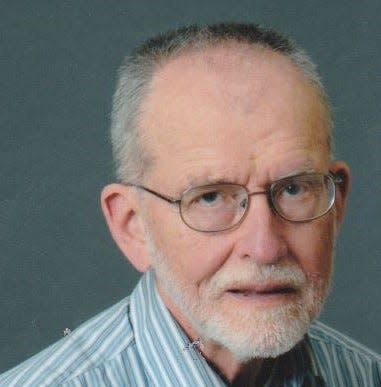Paul F. deLespinasse: Outlaw 'Veggie House'? Why not try freedom of voluntary association?

Until recently, a former sorority house in Corvallis, Oregon, operated as a residence for vegans and vegetarians. It came to mind recently when The New York Times trashed a NYC landlord whose "house rule" banned cooking meat or fish in the building.
Veggie House in Corvallis was a wonderful place to live and attracted a good variety of men and women, including Oregon State University students as well as older adults with no connection with OSU. Before conversion to other uses, it had recently housed people from China, Japan, Oman, Pakistan, India and Malaysia as well as the U.S. The landlord owned another large house with no limitations on what residents could cook.
Veggie House, whose residents stayed anywhere from a few months to many years, developed a unique culture, including ceremonies for celebrating birthdays.
The very idea of making places like Veggie House illegal is outrageous. If "diversity" is good, then diversity in living conditions should be seen as a good thing. But the Times report seemed to suggest that "discrimination" against people who eat meat ought to be illegal.
The reporter indicated unhappily that "The city’s Human Rights Law lists 14 characteristics that landlords are not allowed to consider in deciding whether to rent an apartment to someone, including age, race, family status, job, source of income and sexual orientation. Fondness for hamburgers is not one of them."
As the reported indicated, "It is this 'allowed unless specifically forbidden' construction of anti-discrimination law that makes it perfectly legal for landlords to refuse to rent to smokers — they are not a protected class either."
Readers' comments were mostly highly critical of the landlord. Apparently for many Times readers, "discrimination" on any basis is a horrible thing.
I found this report and the reader reactions fascinating. Like "birds of a feather that flock together," people with shared interests may enjoy living together. Laws prohibiting a landlord from creating a residence where people who, for whatever reason, do not eat meat, can live together, would reduce the variety of available living places.
Such a prohibition would be especially cruel in a country where loneliness is epidemic, since vegans and vegetarians are a small minority of the population and may often feel excluded and lonely. Places like Veggie House can help some of them feel less lonely.
Today's obsession with "discrimination" of any sort (14 types?!) is an illegitimate outgrowth of legitimate efforts to overcome racism. Racism has been a terrible problem calling for drastic countermeasures, including legislation like the Civil Rights Act of 1964 and the Voting Rights Act of 1965.
But the damage done by racial discrimination all piles up on one element of the population. Most other "discrimination" we hear about inflicts little more than inconvenience.
For every baker who doesn't want to serve same-sex weddings, there are dozens who are delighted to get the business. For every landlord who does not want meat or fish being cooked in his or her apartment building, there are hundreds of other landlords who gladly rent to meat-eaters.
In an ideal society, people can freely enter many different kinds of voluntary associations. Such associations only exist when all parties to them consent, so everybody can refuse to enter them if they consider it not in their best interest. Only when refusals to associate pile up on one element of the community, as in the case of race, are legal restrictions even thinkable.
Semantics expert S.I. Hayakawa reminded us that when you have seen one cow you have not seen them all. There are often important differences between cows. Likewise, when you have seen one kind of discrimination, you have not seen them all.
We need to be more discriminating (in the positive, old sense of the term) in determining what kinds of discrimination should be legally discouraged. Places like Veggie House should not be not outlawed.
Paul F. deLespinasse is a retired professor of political science and computer science at Adrian College. He can be reached at pdeles@proaxis.com.
This article originally appeared on The Daily Telegram: Paul deLespinasse: Try freedom of voluntary association
